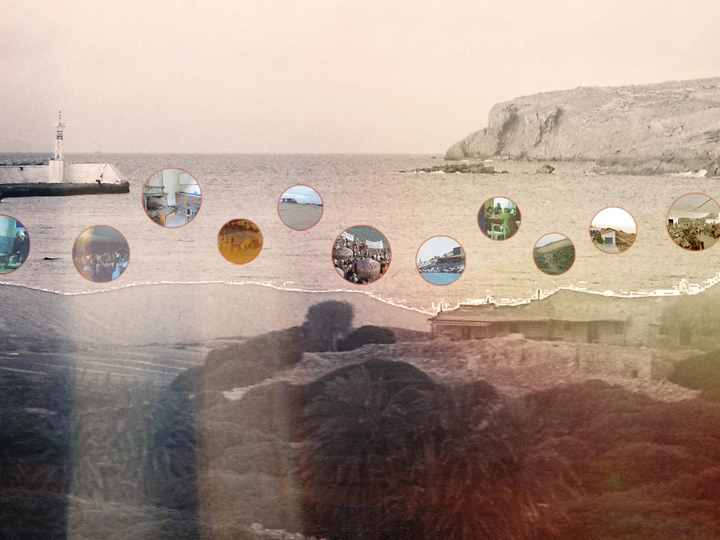Archipelagos_Catalyze Sustainable Tourism

Erato Tsatsou
Greek group of young architects and researchers based in Athens. They had both graduated from the Schools of Architecture of Patras and Chania with a double Master, when they met for the first time at the National Technical University of Athens, where they attended the postgraduate diploma Research in Architecture: Design-Space-Culture. They realized there that their common interest was in observing the transformations of the city, experiencing and making sense of space. In their postgraduate theses, one of them dealt with performative practices capable of reconfiguring spatial data and the other with the bodily classifications imposed by biopolitical imperatives during the pandemic period respectively. Alongside the architectural offices in which they worked at the time, Erato worked as a set designer, while Ioanna provided teaching work at the NTUA and had begun to participate in research projects of the in collaboration with Greek municipalities. Today, Erato is, finally, involved in video production, while Ioanna is a PhD candidate at the School of Architecture, where she is researching how different institutional frameworks in two European cities can give rise to different habitations and different translations of urban commoning. Their work in private architectural practices continues. The first is concerned with architecture in island regions and the preservation of the authenticity of local traditions, and the second with the protection and restoration of monuments and historical contexts, always keeping in mind the concept of spatial justice. Erato recently presented her audiovisual work at an exhibition of young artists in Athens, while Ioanna continues to write texts and stories, which have been published in print and online, but will also be presented at upcoming conferences. All of the above come together to build a diverse profile of a group that seeks and decodes in multiple ways and tools stories of everyday life, stories of places and people.
In recent years, hypertourism has emerged as a direct threat to the spatial and cultural integrity of our islands, and to the welfare of their inhabitants. Our origin and profession have long since matured our interest in addressing the issue through practical means.
We recognize that the effective resolution of critical spatial and economic planning challenges in insular regions, such as mitigating the perils of excessive tourism and promoting sustainable tourism modalities, necessitates comprehensive engagement from local stakeholders and citizens.
Our desire is to "hear" stories that come from the quiet landscapes of island regions, both in terms of communities and architecture. We are constantly asking ourselves what is the role of space in addressing the asymmetrical processes of urbanization affecting the countryside and agriculture, turning environments into landscapes of production.
It is our firm belief that such engagement can be achieved through the dissemination of pertinent knowledge and information among local actors, fostering an environment conducive to heightened awareness and enhanced community involvement. To this end, we propose the creation and widespread distribution of a research based book and accompanying video to all insular regions of eligible countries.
The booklet and video will encompass, at minimum: an examination of the role of local communities and how they deal with destruction, gentrification and environmental degradation; the way the exploitation of these areas is maintained and spreading, which is exacerbating the climate emergency; the documentation of forms of resistance of the inhabitants (stories, testimonies), as participatory practices have the potential to transform the space. We are interested in making ‘visible’ innovative methods, leveraging technology, art, storytelling, and community engagement, and that's why we think that the text combined with the video will serve our aim harmoniously.